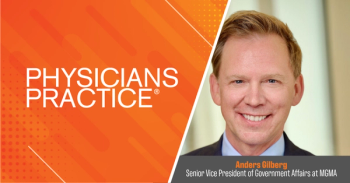
Coping with the Psychological Impact of Covid 19
We are not much good to others, if we are not good to ourselves.
The Covid 19 pandemic has led to unprecedented impacts on the healthcare system, healthcare providers, and society as a whole. You and your staff are on the front lines of what is proving to be a crisis the likes of which we have not previously experienced. While so many of you are experiencing the impact of the novel coronavirus on your day-to-day medical practices, it is imperative to recognize and respond to the psychological impacts this pandemic has on you, your staff, and your patients and their loved ones. No doubt you have availed yourself of the plethora of medical information readily available to you through various websites and professional associations. There is now a large volume of information about the psychological implications-the intent of this article is to distill that information into readable bites so you can put strategies into practice, for your practice.
Let’s start with the implications for you and your staff. With a healthcare crisis such as this one, where there are many uncertainties and constant change, people can react in different ways, from distress to acute stress, meaning that their ability to function will also vary. Take time to self-reflect on how the pandemic is impacting you. Depending on what you notice, you may need to take more or less time to engage in activities that will mitigate the negative impacts of stress so you can function optimally. Below I will review some basic stress resiliency practices you can put into use today. Before thinking about how to help your staff, take care of yourself first. We are not much good to others (staff or patients), if we are not good to ourselves.
Recognize that there are a host of emotions that might get triggered at this time, including fear (response to an imminent threat), anxiety (anticipation of future threat), helplessness, hopelessness, guilt, isolation, and even rejection. These emotions can impair one’s ability to function optimally (emotions get our attention and we tend to react faster than we think). The goal is help yourself and others proactively employ strategies to mitigate and cope with these emotions.
Strategies for managing distressing emotions:
- Recognize and “normalize” – we all are going through some level of distress. It is to be expected and deserves our attention. Self-awareness is key. Knowing, as early on as possible, when distressing emotions are coming up, can be used as a signal to stop and take steps to reduce stress.
- Mindfulness – one of the best strategies that one can use (because it is so effective, easily implemented, and takes little time) is to take a minute to stop what you are doing, focus on your breathing and think of a calming thought, image or belief. It is an incredibly powerful tool.
- Get into a routine – sleep, exercise and diet are critical strategies for improving our ability to respond to stress. Avoid excess use of caffeine and alcohol, especially if your sleep is impaired. Routines help us cope because they provide some consistency and predictability (at a time when there is little of either)
- Labeling – when emotions are not overly intense, labeling them helps to reduce their impact. This is because there is an inverse relationship between amygdala activation and PFC activation-we have to activate our PFC to come up with a label for the emotion. So, for example, just acknowledging that you, or someone else, is feeling fearful, helps to reduce the level of fear.
- Perspective taking – be aware of the link between thoughts and emotions. At times like this, many people can “catastrophize”, setting off a snowball effect where fear and anxiety significantly increase. Using perspective is critical at these times. For example, focusing on what measures are being put into place to help protect people or reminding yourself and others of why and how certain protocols are beneficial in keeping people safer.
- Focus on what is under one’s control. It is easy to feel helpless when a pandemic hits. One of the things we can always control is how we are responding and what actions we are taking to make a difference.
- Reach out to social supports, even if you have to do it virtually. While social distancing and staying home (when not at work) is imperative, social isolation is not. Fortunately, there are many ways to stay connected with others. Reach out for support and reach out to others to offer support.
- Gratitude and compassion – both of these not only help to lower stress levels; they also help boost immunity and improve perspective. It takes only a few seconds to think of something you are grateful for. I encourage people to do a gratitude exercise several times a day. Similarly, thoughts and acts of compassion help get us out of ourselves (thus reducing distress) and can be extremely beneficial to the recipients of our kindness. This includes sharing appreciation with others for something they have done. Make a point of engaging in several acts of kindness a day. It benefits you as much as (or more) than the recipient.
- Avoid excessive exposure to media – it can impair both mental and physical health. I encourage people to limit their exposure to specific times each day and to rely on only a few sources that they trust. Otherwise, the information one has acces to can be overwhelming.
Helping your staff
During this time, you may find that a different type of “leadership” style is required, one that is more facilitative and focused on helping people manage in healthy and productive ways. Here are some suggestions:
- Acknowledge – let people know that you are aware that this can be a really challenging time and that no two people respond the same. When you notice someone having difficulty, stop and acknowledge what you notice, then,
- Check in – now is a time to encourage frequent staff huddles (which can be done quickly) to see how people are doing and to determine how staff can support one another (for example, making it okay for someone to say they need a break for a few minutes so they can cope better). Ask how they are coping. If you ask a perfunctory question like “How are you?” you are likely to get a perfunctory response, “Fine”. Instead, something like this will be much more effective in communicating that you truly care: “This is a challenging and scary time at the hospital. How is it impacting you? How might I be most helpful or supportive to you?” Then, stop and…
- Listen with presence. If you are genuinely interested, then take the time to genuinely hear what the person tells you.
- Communicate with transparency. Be sure to let people know what you know, even if you don’t have all the answers. In the absence of information, people tend to make things up and it’s usually more negative than positive. Also, this is a good time for a little self-disclosure about how you are feeling (it helps normalize their experience).
- Facilitate a discussion that helps people take a solution-oriented approach to coping. Ask people what steps they can take to manage their stress, knowing that you cannot remove their stress and being careful not to minimize or negate what is happening. Certainly, the 7 strategies above might prove valuable for your employees.
Interacting with patients and families:
This is a time when many patients and their loved ones will be experiencing a myriad of emotions-fear, sadness, and even anger-and they will be more easily triggered due to the stress they are experiencing. The most important steps are ones that serve to mitigate stress:
- Acknowledge their feelings and their perspectives, so they feel understood and heard. Acknowledgement does not mean agreement. “I know this is very ____ name the emotion (frustrating, frightening, scary, sad) for you. Please know that I will do whatever I can to support and help during this difficult time.
- Be transparent – let patients and family know what to expect
- Whenever possible, give them choices so they feel some sense of control
Changing habits: this pandemic has taught us all that there are new behaviors that we must practice if we are to avoid becoming ill and/or spreading the virus. It is important to recognize that developing new habits is definitely possible (we can form new neural connections) if we practice, practice, practice (to hard-wire the changes). Creating reminders and supporting one another in practicing the new behaviors are great ways to help develop new habits.
I hope these strategies prove beneficial for you, your staff, your patients, and your loved ones.
About the Author
Newsletter
Optimize your practice with the Physicians Practice newsletter, offering management pearls, leadership tips, and business strategies tailored for practice administrators and physicians of any specialty.






